How To Live A Peaceful Life? Discover 101 timeless principles to peaceful life.
When faced with adversity (dealing with bad news, a difficult person, difficult situation…), we tend to blow things out of proportion and overreact.
We focus on the negative and lose sight of the bigger picture.
We live our lives as if they were one big emergency, and we spend our lives dealing with one drama after another.
What we fail to understand is that the way we view our problems has a lot to do with how efficiently we can solve them.
Happily, there is a more graceful way to view life that makes it seem easier and much more peaceful.
This “other way” of living requires replacing your old habits of “reaction” with new habits of perspective.
Think of this as a light-hearted primer for how to live your life more peacefully, not a bible to be slavishly followed. Adopt as many or as few as you fancy of the suggestions given here, but in truth, there are no hard-and-fast rules on peaceful living.
Ready? Let’s get started!
How To Live A Peaceful Life? 101 Timeless Principles to Peaceful Life
1. Don’t Sweat the Small Stuff
Often we get all worked up about small things that aren’t that big a deal. Having to wait in line, or hearing unfair criticism is the small stuff that occurs every day in our lives.
Instead of convincing yourself that you’re justified in your anger, allow this “small stuff” to pass by. Let go of your need to control everything that happens throughout your day and simply commit yourself to enjoy the beauty of life.
2. Make Peace with Imperfection
Perfection and inner tranquility conflict with each other. Instead of being grateful for what we have, we keep focusing on what’s wrong with something and how to fix it. This leads to perpetual dissatisfaction.
This isn’t to say that you should cease doing your best. Rather, this is about enjoying and appreciating the way things already are.
3. Let Go of the Idea that Gentle, Relaxed People Can’t be Superachievers
Many people believe that living a peaceful life means that they’ll become lazy and stop achieving their goals. So we keep ourselves busy and we remain hurried as if life one great emergency.
Fearful, frantic thinking takes so much of your energy and drains your creativity and motivation. By acknowledging this, you’ll be able to allow yourself to feel peaceful and become more focused on achieving your goals.
Related: Overcoming Perfectionism: 10 Ways to Overcome Toxic Perfectionism
4. Be Aware of the Snowball Effect of Your Thinking
It’s impossible to find peace with a head full of worries. By becoming aware of how quickly your negative thoughts can spiral out of control, you can stop them and replace them with positive ones.
If you find yourself worrying about an important meeting and thinking about all the reasons why it might go wrong, remind yourself that you’ve handled so much before and you’re going to handle this too.
“The sooner you catch yourself in the act of building your mental snowball, the easier it is to stop.”
Related: 6 Powerful Techniques To Overcome Negative Thinking
Negative Thoughts Worksheets
5. Develop Your Compassion
Compassion is about taking the focus off yourself and imagining what it’s like to be in someone else’s shoes. You begin to realize that people have problems and feel pain and frustration as much as you do.
When you stop focusing on your problems and worries and start caring for others, your life becomes much more peaceful.
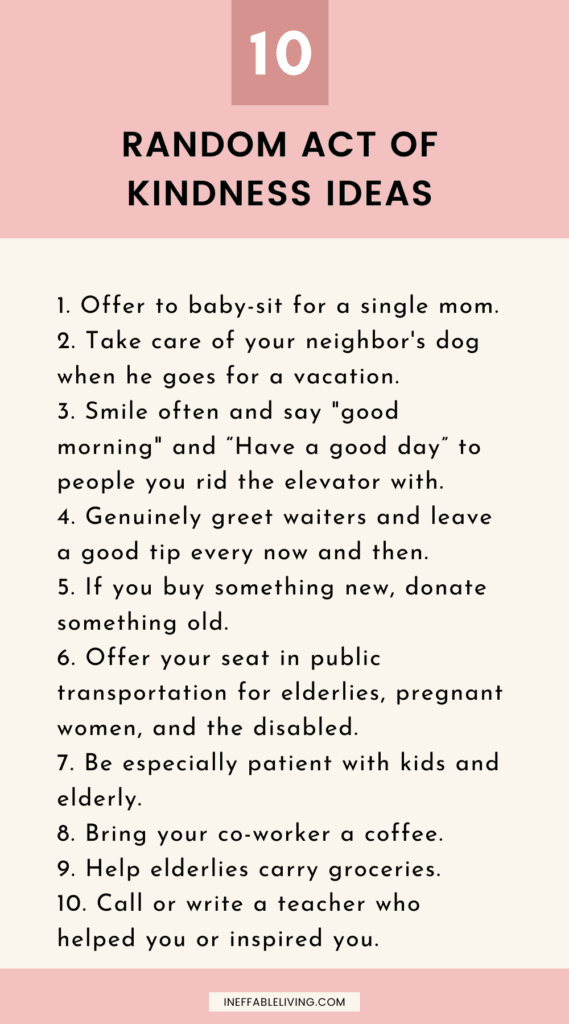
Related: Best 50 Acts Of Kindness to Show Compassion to Others Every Day
6. Remind Yourself that When You Die, Your to-do List Won’t Be Empty
We tend to live with the secret purpose of getting everything done. We work hard, avoid having fun, and spend little time with our loved ones. We somehow convince ourselves that this urge to get things done is only temporary and once we check every item on our to-do list, we’ll be peaceful and happy. However, the more items with check off, the more new ones take their place.
Remember that nothing is more important than your own sense of happiness and inner peace. So make them a priority.
7. Don’t Interrupt Others or Finish Their Sentences
Many of us tend to interrupt others or finish their sentences, especially when we’re busy. This pushes both people to speed up their speech and their thinking, and in turn, makes both parties nervous and irritated. Not to mention the arguments it might cause and one of both people ending up hurt because they didn’t feel heard or understood.
Remind yourself to be patient. Allow the other person to finish speaking before taking your turn. You’ll soon notice how your interactions with others will improve and how relaxed they will become around you.
Related: The Art of Validation: How to Comfort and Support Someone Without Giving Advice?
8. Do Something Nice for Someone Else – and Don’t Tell Anyone About It
Doing something nice for someone else makes us feel uplifted and reminds us of how deserving we are of kindness. And although all acts of kindness are inherently wonderful in itself, it’s even more magical when you don’t mention it to anyone.
Keeping the act of kindness to yourself and not telling about it to anyone, allows you to retain all the positive feelings.
9. Let Others Have the Glory
There’s a calming effect to not needing all the attention directed toward yourself and allowing others to have the glory. In fact, bringing the conversation back toward you can minimize the joy the other person has in sharing his own story. This can create distance between yourself and others.
Next time someone shares an accomplishment with you or tells you a story, don’t say anything about yourself in response. Let them have their glory.
10. Learn to Live in the Present Moment
We spend much of our lives worrying about the future and regretting our past. We allow past problems and future worries to occupy so much of our present moment that we end up depressed and anxious.
Your peace of mind is largely determined by how much you are able to live in the present moment. The more you are focused on your present moment, the more peaceful you are.
Related: How To Stop Dwelling On The Past? (3 Simple Ways To Make Peace With Your Past)
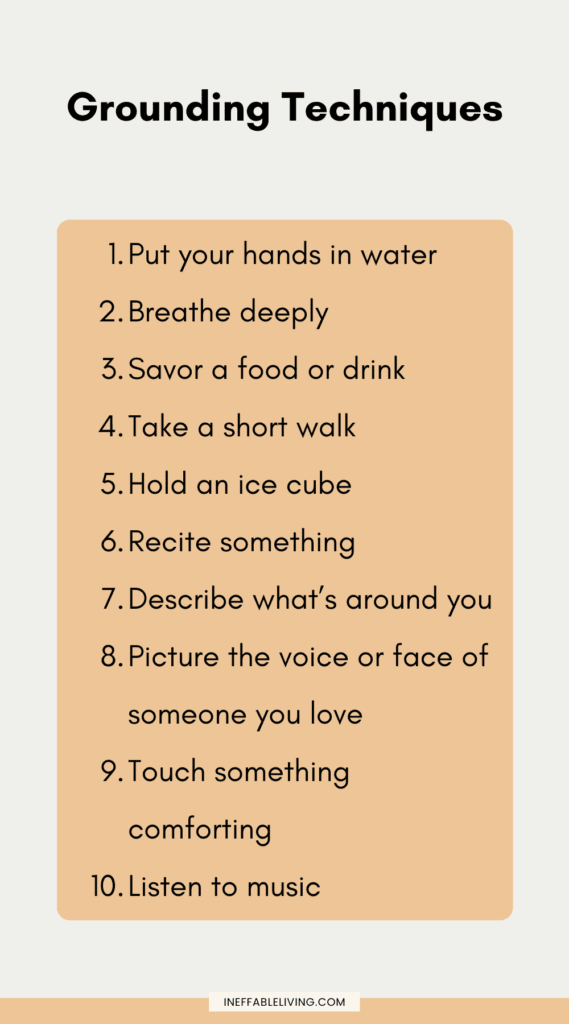
11. Imagine that Everyone Is Enlightened Except You
Imagine that everyone you meet is perfectly enlightened. That everyone you meet is here to teach you something. Perhaps the disrespectful teenager is here to teach you patience.
When you become able to see the lesson everyone is here to teach you, you feel more peaceful and your interactions with other people improve.
12. Let Others Be “Right” Most of the Time
This is a question of whether you want to be right or to be happy because oftentimes, the two are mutually exclusive.
Defending our positions takes so much energy, but also alienates us from other people. It encourages others to become defensive.
This is not to say that being right isn’t appropriate. However, usually, it’s just our ego needing to be right and ruining an otherwise peaceful encounter.
Allowing other the joy of being right, brings more peace and love into your life.
Related: How To Communicate More Effectively
13. Become More Patient
Without patience, you are easily irritated and frustrated.
Patience adds a sense of ease and acceptance to your life. When you become more patient, you start accepting what is, rather than insisting that life be exactly what you’d like it to be.
If you’re stuck in a traffic jam and are late for an appointment, take a breath and remind yourself that being late is “small stuff.”
14. Create “Patience Practice Periods”
Patience is a quality that can be enhanced with deliberate practice. This is why you need to create actual patience practice periods.
Start with as little as five minutes every day. If you find it hard to play with your small children without losing your patience, resolve to be patient for the next ten or fifteen minutes. Keep your cool and don’t allow yourself to annoyed or upset.
15. Be the First One to Act Loving or Reach Out
We tend to hold on to past resentments and stubbornly wait for the other person to reach out to us. We believe that it’s the only way to rekindle the relationship. But the truth is, when we take the chance and reach out, no matter whose fault it is, everyone wins.
Remind yourself that being right is never more important than being happy and bringing peace into your relationships and life.

16. Ask Yourself the Question, “Will This Matter a Year from Now?”
We often get all worked up about almost everything. We believe that almost everything is really important.
It can be an argument with a loved one, a mistake at work, a lost opportunity… Ask yourself “Will this matter a year from now?” It might not solve the problem, but it can give you a much-needed perspective to decide what really matters and what doesn’t.
17. Surrender to the Fact that Life Isn’t Fair
Life isn’t fair. Even though we know very well that life has never been fair, we still keep hoping that it will be one day. So we spend a lot of time complaining about what’s wrong with our lives.
When you surrender to the fact that life isn’t fair, you stop feeling sorry for yourself and start doing the best you can with whatever you have.
Related: How To Let Go Of The Need To Control Everything And Start Enjoying Life
18. Allow Yourself to Be Bored
Many of us find it almost impossible to sit still and so nothing even for a few minutes. Our busy, overactive minds always need something to focus on, constantly wondering “What’s next?”
We’re simply unable to relax and enjoy ourselves.
By allowing yourself to be bored without fighting it, the boredom will soon be replaced with feelings of peace, and with some practice, you’ll learn to relax and enjoy yourself.
Related: How To Overcome Solitude Phobia: 4 Ways To Get Comfortable Spending Time alone
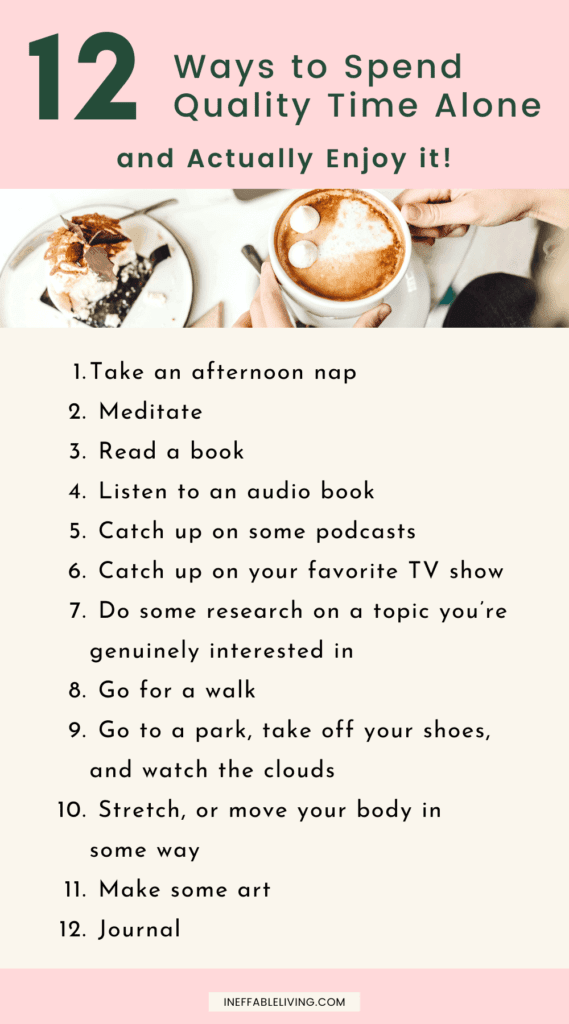
19. Lower Your Tolerance to Stress
We tend to look up to people who can handle loads of stress and who are under a great deal of pressure. Oftentimes, it takes a crisis of some kind for a stressed-out person to wake up from his own craziness – a health issue emerges, a spouse leaves…
You need to start noticing your stress early before it gets out of hand. When you’re feeling out of control, slow down and reevaluate what’s important. Take a few deep breaths and go for a short walk.
20. Once a Week, Write a Heartfelt Letter
Taking a few minutes each week to write a heartfelt letter slows you down long enough to remember the beautiful people you’re blessed to have in your life. It fills your life with gratitude.
Even if you can’t think of someone in your life you can write to, go ahead and write to someone you don’t know personally- perhaps someone who inspired you. The letter doesn’t have to be sent, the very act of writing can be enough to make you more peaceful.
21. Imagine Yourself at Your Own Funeral
This might be scary for some people, but it’s an effective strategy to remind us of what’s important in our lives.
Most people, looking back on their lives, wish they had spent more time with the people they love. Wish they had spent more time doing the things they love. But they also wish they didn’t waste as much time worrying about the small stuff.
22. Repeat to Yourself, “Life Isn’t an Emergency”
Most people believe and act as if life was one big emergency. We, ourselves, create pressure in our lives. We take our goals so seriously we forget to enjoy the process and beat ourselves up when we don’t meet our self-created deadlines.
You need to become aware of how you’re creating your own emergencies. Only then will you be able to remain peaceful when life doesn’t go according to plan. Keep reminding yourself that “Life isn’t an emergency.”

23. Allow Your Subconscious Mind to Solve Your Problems
When you distract your conscious mind by focusing on doing something, you’re allowing your subconscious mind to work on finding solutions for your problems.
This isn’t a prescription for procrastination. You want to gently hold the problem in your mind without actively analyzing it.
Related: How to Get Quality Sleep & Stop Bad Dreams
24. Spend a Moment Every Day Thinking of Someone to Thank
This strategy takes only a few seconds to complete but can be one of the most important habits that will change your life drastically.
Gratitude and inner peace go hand in hand. The more genuinely grateful you feel, the more peaceful you become.
To gear your attention toward gratitude, take a few moments to think of three things you’re most thankful for each day. Write them down in a journal.
Related: Improve Your Life & Happiness With The Power of Gratitude
25. Smile at Strangers, Look into Their Eyes, and Say Hello
We’re social beings, and even with technology and progress, we seem to get more and more isolated. It became usual for people to walk around with their heads down, frowning, and looking away from people.
This isn’t to suggest that you need to greet every stranger you walk past, but to think of strangers as being a little more like you and make eye contact with them and smile as much as you can. You’ll notice how grateful most people are that you’re reaching out first.
26. Set Aside Quiet Time, Every Day
There is something rejuvenating and peaceful about solitude and having some time to yourself to reflect, do something you love, or simply enjoying the quiet.
It can be a few minutes to meditate, workout, enjoying a bath, or reading a book, quiet time to yourself is a great way to balance the noise that infiltrates much of our days and bring more peace into your life.
Self-Care Worksheets
27. Imagine the People in Your Life as Tiny Infants and as One-Hundred-Year-Old Adults
This technique is especially useful for releasing feelings of irritation toward other people.
By imagining the person who is irritating you as a tiny innocent infant or one-hundred-year-old dying adult, you’ll start feeling more compassionate toward that person.
28. Seek First to Understand
When you focus on understanding others before getting them to understand you, your communication becomes more fulfilling to you and others.
If you practice this method, you’ll notice that people you interact with will feel listened to and understood. As a result, your relationships become more loving and you become more peaceful.
29. Become a Better Listener
Effective listening isn’t just about avoiding the bad habit of interrupting others while they’re speaking, or waiting impatiently for your chance to respond. It’s about being content to listen to the entire thought and seeking to understand first.
It takes a large amount of energy to try to guess what the person wants to say. Slowing down your responses and becoming a better listener helps you become a more peaceful person.
30. Choose Your Battles Wisely
Choosing your battles wisely suggests that you always have the choice between making a big deal out of something, or simply letting it go.
When you choose your battles wisely, you’ll be able to focus on those that are truly important. You might even realize that there are very few battles in life worth fighting.
31. Become Aware of Your Moods and Don’t Allow Yourself to Be Fooled by the Low Ones
Your moods can trick you into believing that your life is much worse than it really is. When you’re in a good mood, life feels great. Things don’t seem so hard and problems seem easier to solve.
However, when you’re in a bad mood, life becomes unbearably serious and difficult. You take things personally and misinterpret those around you.
Your bad moods shouldn’t be the time to consider and analyze your life. It’s time to slow down, take care of yourself, and remind it that “This too shall pass.”
Related: 8 Ways To Boost Your Happiness In Less Than A Minute
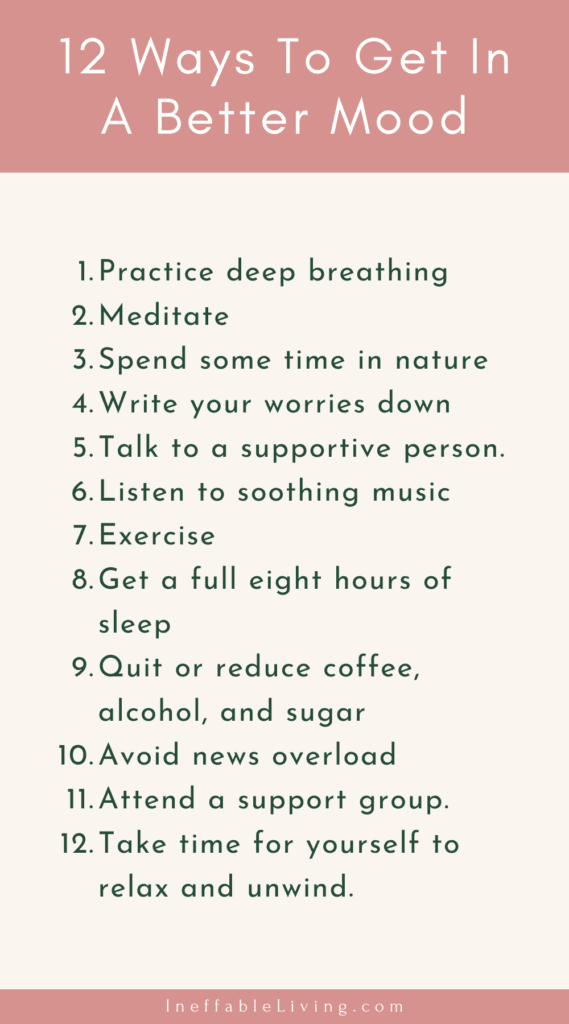
32. Life Is a Test. It Is Only a Test
When you see life as a test, you’ll find it easier not to take life so seriously. You’ll be able to see challenges as an opportunity to grow. The sense of rising above that which is challenging you alone is a success.
Instead of facing every issue as a serious battle that must be won, choose your inner peace, and let go of the need to control everything.
33. Praise and Blame Are All the Same
You’ll never be able to please everything all the time. Everyone has their own set of values with which to evaluate life, and our values don’t always match those of other people. Although this is an inevitable fact, we would still get angry and hurt when people disapprove of our ideas.
One of the secrets to inner peace is to accept the inevitable fact that not everyone is going to like you all the time. And it’s okay.
34. Practice Random Acts of Kindness
There’s a great sense of joy that can be found in giving without expecting anything in return. There is no prescription for how to practice random acts of kindness. It should come from your heart.
Whether it was making an anonymous contribution to a charity, or even smiling at someone else, the point is to give without expecting anything in return.
35. Look Beyond Behavior
If love were based solely on behavior, then perhaps none of us would have been loved as a child and even as a teenager. When someone makes a mistake imagine they’re children who don’t know what they were doing.
This isn’t to say that we should excuse negative behavior or let others “walk all over us,” it just about having the wisdom to give others the benefit of the doubt.
36. See the Innocence
It’s tempting to see people as “guilty” instead of “innocent” when we focus on their seemingly mean-spirited and selfish behavior.
This isn’t to say that you should accept or ignore negative behavior, it’s about learning to be less bothered by the actions of people. It’s about looking beyond the behavior and seeing the innocence of where the behavior is coming from.
37. Choose Being Kind over Being Right
You always have opportunities to choose between being kind and being right. You can point out to someone their mistakes, to correct them, to point out things they should have done differently… these opportunities would make someone else feel bad, and yourself feel bad in the process.
The opposite is also true. When you make someone feel good, you too feel good. The next time you have the chance to correct someone, resist the temptation.
38. Tell Three People (Today) How Much You Love Them
We want to believe that we will live forever, that someday we will get around to telling our loved ones how much we love them. but that “someday” might come too late.
Start telling the people you love how much you love them, in person or over the phone. Even if you’re too shy to make a phone call, write a heartfelt letter and let them regularly know how much you love them.
39. Practice Humility
The less compelled you are to prove yourself to others, the more peaceful you feel inside.
It takes a large amount of energy to continually point out and brag about your accomplishments. Ironically this isn’t likely to make you more loved by others, quite the opposite. The more you try to prove yourself, the more others will resent you.
The next time you have an opportunity to brag, resist the temptation.
40. When in Doubt about Whose Turn It Is to Take Out Trash, Go Ahead and Take It Out
It’s easy to become resentful about all the responsibilities we have in our daily lives. And keeping scores can only ass more clutter to your mind.
This is why it’s always better to know that you’ve done your part and someone else has one less thing to do than to fret over whose turn it is to take out the trash.
41. Avoid Weatherproofing
Just as we can weatherproof a home by looking for leaks and cracks, we can do the same for our relationships and even our lives by looking out for flaws and imperfections to be fixed.
Other than alienating you from other people in your life, this tendency can also make you feel bad. It encourages you to think about what’s wrong, rather than what’s right. You forget about the good things and focus on the negative.
42. Spend a Moment, Every Day, Thinking of Someone to Love
Thinking of someone you love is an excellent source of gratitude and inner peace. It can also deepen your love toward them and improve your relationships.
Related: How to Stay in Love? 50 Secrets of Happy Relationships
43. Become an Anthropologist
The science of anthropology deals with man and his origins. In the context of bringing more peace into your life, this strategy implies “being interested, without judgment, in the way other people choose to live and behave.”
Being interested in the way other people act will increase your compassion. It’s a way to become less annoyed and frustrated by the actions of others.
Rather than focusing on the behavior, you become interested in other perspectives.
44. Understand Separate Realities
The principle of separate realities says that the differences among individuals are very vast. It doesn’t just include the way we see and do things, but also the way we see the world.
Understanding these differences isn’t a matter of merely tolerating them, but of truly understanding the fact that it can’t be any other way.
This can virtually eliminate quarrels, make us more compassionate, and increase the love and appreciation you feel for others.
45. Develop Your Own Helping Rituals
If you want a peaceful life, it’s important that you do kind things. This could be done by developing your own helping ritual. These little acts of kinds serve as a reminder of how good it feels to be helpful.
It could something as small as holding the door open for people or shoveling snow off someone else’s driveway. It’s rewarding and sets a good example.
46. Every Day, Tell at Least One Person Something You Like, Admire, or Appreciate about Them
Many people don’t remember the last time they told someone how much they like, admire, or appreciate them. Simply because they either feel like they don’t need to tell them – they already know, or because they’re too embarrassed to say anything.
But if you ask the would-be recipient if they would enjoy a genuine compliment and positive feedback, the answer is almost always, “I would love it.” You might find it hard at first, but eventually, you’ll discover that it takes no effort to tell someone you like or appreciate them.
Improve Your Relationship Worksheets
47. Argue for Your Limitations, and They’re Yours
Many people spend a great deal of energy repeating to themselves statements such as “I can’t do that,” “I can’t help it,” and many other self-defeating statements.
Filling your head with limitations will frighten you from even trying. Whatever you want to do or have, the first step you need to take is to silence your greatest critic – you.
You can do this by arguing your limitations. When you hear yourself saying “I always do that,” argue it by saying “That’s ridiculous. I don’t always do anything.”
Related: Facing Your Fears: 5 Truths About Fear And 5 Ways To Conquer Fear And Get Unstuck
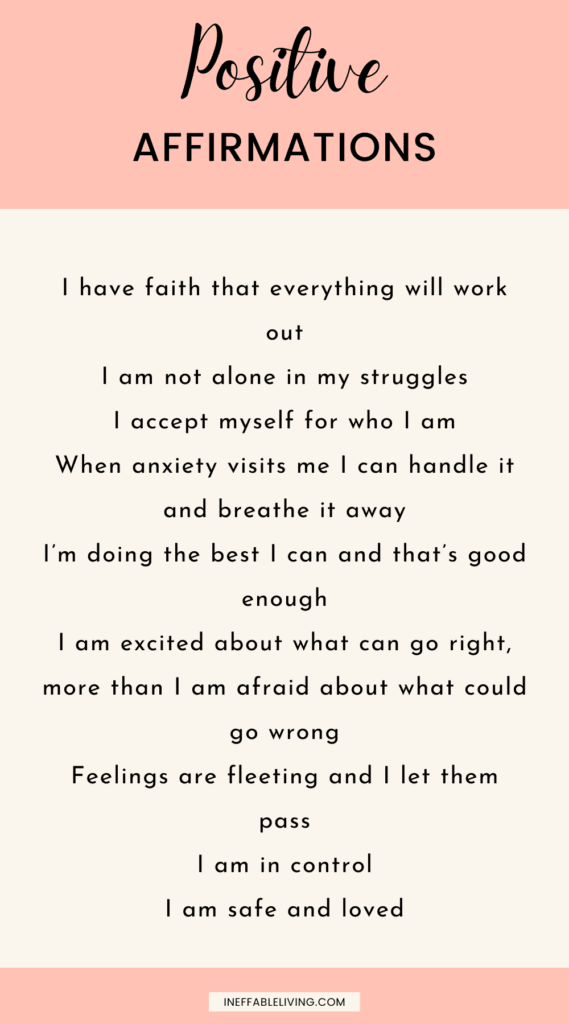
48. Remember that Everything Has God’s Fingerprints on it
When we start seeing God’s fingerprints on everyday things – a beautiful sunrise, the smile of a healthy child, ocean waves… – a feeling of peace emerges.
Just because we can’t see the beauty in something doesn’t mean that it’s not there. Rather, it means that we’re not looking carefully enough to see it.
49. Resist the Urge to Criticize
Criticizing another person doesn’t say anything about that person. Rather, it says something about our own need to be critical.
Being critical not only solves nothing, but it also contributed to the anger in our world. No one likes to be criticized and a person who feels attacked is likely to either retreat in fear or shame or attack and lash out in anger. At the same time criticizing leaves, you feeling a little deflated and ashamed. You both lose.
50. Write Down Your Five Most Stubborn Positions and See if You Can Soften Them
Such positions could be something along these lines:
“Children are too much work.”
“Women spend too much money.”
“People who aren’t stressed are lazy.”
The goal here isn’t to change any specific statements, but to become aware that often you hold so tightly to any given idea you might have.
Softening your positions will make you stronger. You’ll become able to approach different matters with objectivity. If for example, you believe that your wife spends so much money, noticing your rigidity and examining the situation might reveal that she doesn’t spend that much after all and maybe you spend more money than she does. This will help you relax and improve your marriage.
51. Just for Fun, Agree with Criticism Directed Toward (Then Watch It Go Away)
We tend to get defensive by the slightest criticism. We fill our minds with angry or hurtful thoughts toward ourselves or the person who is being critical.
We can spare ourselves this and bring back peace by acknowledging that criticism is simply an observation by another person about us, our actions, or the way we think about something, that doesn’t match the vision we have of ourselves.
Reacting to criticism won’t make it go away, it will only convince the person that they’re accurate in their assessment of you.
52. Search for the Grain of Truth in Other Opinions
Everyone thinks highly of his opinion otherwise we wouldn’t be sharing it. However, one of the destructive things many of us do is compare others’ opinions to our own. And if we don’t agree with it, we either dismiss it or find fault with it. We’re focusing on being right rather than learning something new. It really doesn’t say anything about the other person’s opinion, but it says a lot about our need to criticize.
The next time, rather than looking for fault in someone’s opinion, look for a grain of truth in what the person is sharing.
53. See the Glass as Already Broken (and Everything Else Too)
The essence of this Buddhist teaching is that all of life is in a constant state of change. Everything has a beginning and has an end. Like the glass that was created and will eventually break, every car, machine, and piece of clothing is created and will wear out and vanish.
This implies that when you expect something to break, you simply are not disappointed when it does. Instead, you feel grateful for the time you have had.
54. Understand the Statement, “Wherever You Go, There you Are”
Wherever you go, you take yourself with you. Keeping this in mind will help you stop blaming your circumstances and instead focus on improving and accepting yourself.
If you are generally happy you don’t need to be somewhere else, with another partner, in a different career, or in any different circumstances.
In other words, if you find peace right now, in your present circumstances, then, as you move around, meet new people, experience different circumstances, you’ll always bring your peaceful self with you.
Self-Compassionate Statements
55. Breathe Before You Speak
Taking a breath after the person to whom you are speaking is finished, not only shows that you respect the person but also helps you gain more perspective.
This allows the person to feel listened to, so only do you end up feeling much calmer by taking a breath before speaking, but so is the person you’re speaking with.
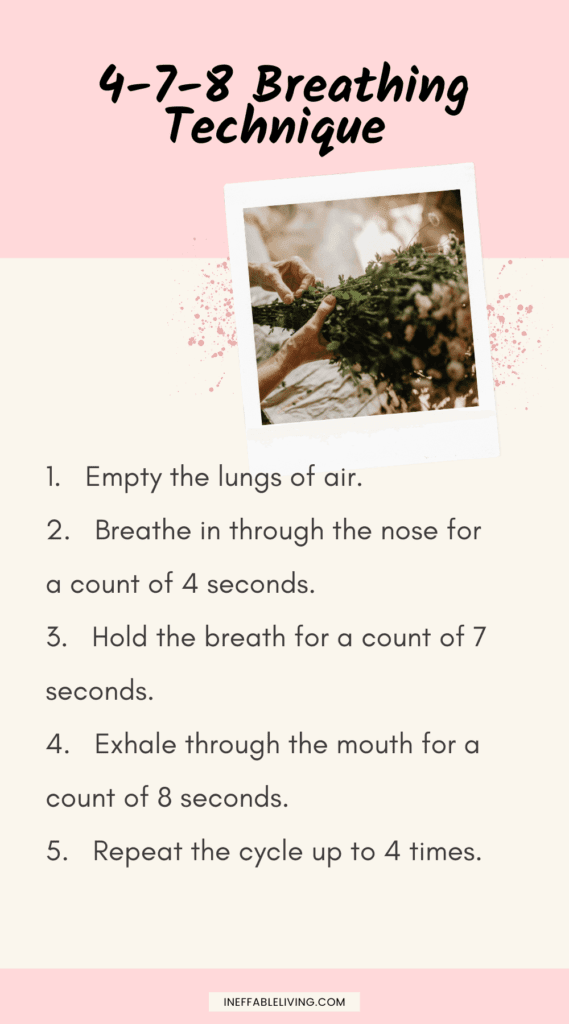
56. Be Grateful when You’re Feeling Good and Graceful when You’re Feeling Bad
Even the happiest people on earth have their fair share of low moods, problems, and disappointments. But what makes the difference between someone who’s happy and someone who’s is unhappy, isn’t how often they feel low, or how low they drop, rather, it’s how they react when they’re feeling low.
Most people take their low moods too seriously. They get to work trying to figure out and analyze what’s wrong, which tends to add to their problems rather than solve them. In fact, the more they focus on what’s wrong, the worse they’ll end up feeling.
Happy people are grateful when they’re feeling good, and graceful when they’re feeling bad. They don’t mind feeling low every now and then. They accept the inevitability of passing feelings. They usually use the time to slow down and take care of themselves by practicing some self-love.
Gratitude Journaling Prompts
57. Become A Less Aggressive Driver
Many of us get most uptight when we’re driving in traffic. We don’t realize that being an aggressive driver not only puts us and everyone around us in extreme danger but also is extremely stressful. You end up with high blood pressure, strained eyes, and most probably saving little to no time in getting to where you want to go.
It just isn’t worth it.
On the other hand, making the conscious decision to become a less aggressive driver, helps you use your time in the car to relax. Driving isn’t just a way of getting somewhere, it’s also a chance to breathe, reflect, and even learn a new skill listening to audiobooks. Not to mention that you become a more peaceful person.
58. Relax
Most people believe that relaxing is something you plan and do later – you do it on a vacation, when you retire, or when you get everything on your “to-do” list done. In a way, this also implies that we expect ourselves to go through our days nervous and agitated.
Start thinking of relaxation differently. View it as a quality that you can access on a regular basis rather than at a later time.
Train yourself to react differently to the dramas of life. Remind yourself that you always have the choice in how you respond to life.
59. Adopt a Child Through the Mail
Many people reported that adopting a child through the mail has been an extremely positive experience for them.
You don’t actually adopt a child, but you help one out while getting to know them at the same time. This is different from the traditional way of giving money to a charity and having no way of knowing who you are helping.
Adopting a child through the mail is more than contributing every month to the agency in charge of helping the children, you not only get to know who, but you also get to know them as well.
This way, you can feel the impact you’ve made on someone’s life which brings forth feelings of peacefulness.
60. Turn Your Melodrama into a Mellow-Drama
Most people approach life as a melodrama. They constantly blow things out of proportion and make a big deal out of everything.
Life isn’t as bad as we’re making it out to be. Reminding yourself that you don’t have to make your life a soap opera can be a powerful method of calming yourself down.
61. Read Articles and Books with Entirely Different Points of View from Your Own and Try to Learn Something
We tend to pick up articles and books that justify and reinforce our own opinions and views on life. The same is true with what we choose to listen to on the radio and watch on TV.
This rigidity can hold you back from learning other points of view that are different from our own and expanding our minds.
For just a few minutes a day, try making a gentle effort to read books and articles with a different point of view. You’re not changing your core beliefs. You’re simply expanding your mind and opening your heart to new ideas. This will help you become more patient and relaxed when meeting other people with different opinions.
62. Do One Thing at a Time
Doing more than one thing at a time, not only makes it impossible for you to enjoy being present but also makes you far less focused and effective.
Start doing one thing at a time. Block out periods of time where you commit to doing only one thing at a time. Soon, you’ll notice that you’re actually enjoying what you’re doing, even if it was something as mundane as washing dishes, and how quickly and efficiently you’re getting things done.
63. Count to Ten
When you find yourself getting frustrated or angry, before deciding what to do, try counting to ten. You can even couple it with deep breathing.
The combination of counting and breathing is so relaxing, it’s almost impossible for you to stay angry once you’re finished.
64. Practice Being in the “Eye of the Storm”
The eye of the storm is one specific spot in the center of a hurricane or tornado that is calm. Everything around the center is violent. Like the eye of the storm, you too can remain peaceful and calm in the midst of chaos.
This is something that needs intention and practice. You can practice breathing deeply, listening, letting others be right. The point is, you can be that peaceful person even in the midst of a “human storm”.
65. Be Flexible with Changes in Your Plans
For many of us, once we get something in our mind, it becomes tricky to let go of it and go with the flow. This inflexibility can create an enormous amount of inner stress.
You might think that it’s natural to be frustrated when your plans change. But that really depends on what your priorities are. Is missing your thirty-minute run more important than being available for your child?
66. Think of What You Have Instead of What You Want
Focusing on what we want instead of what we have can be one of the most destructive mental tendencies most of us have. No matter how much we have, we’re always expanding our list of desires. This is a recipe to remain unfulfilled and dissatisfied.
Happiness can’t be found when you are yearning for new desires. It can only be found when you change the emphasis of your thinking – from what you want to what you have. Instead of wishing a different spouse, try thinking about their wonderful qualities.
67. Practice Ignoring Your Negative Thoughts
Research has shown that the average human being has around 50,000 thoughts per day. But being peaceful isn’t about whether or not you’re going to have negative thoughts, rather it’s about what you choose to do with the thoughts you have.
To deal with your negative thoughts, you have two options. You can analyze your thoughts and ponder them, or you can ignore them and not take them seriously. And the latter option is so much more effective if you want to be a peaceful person.
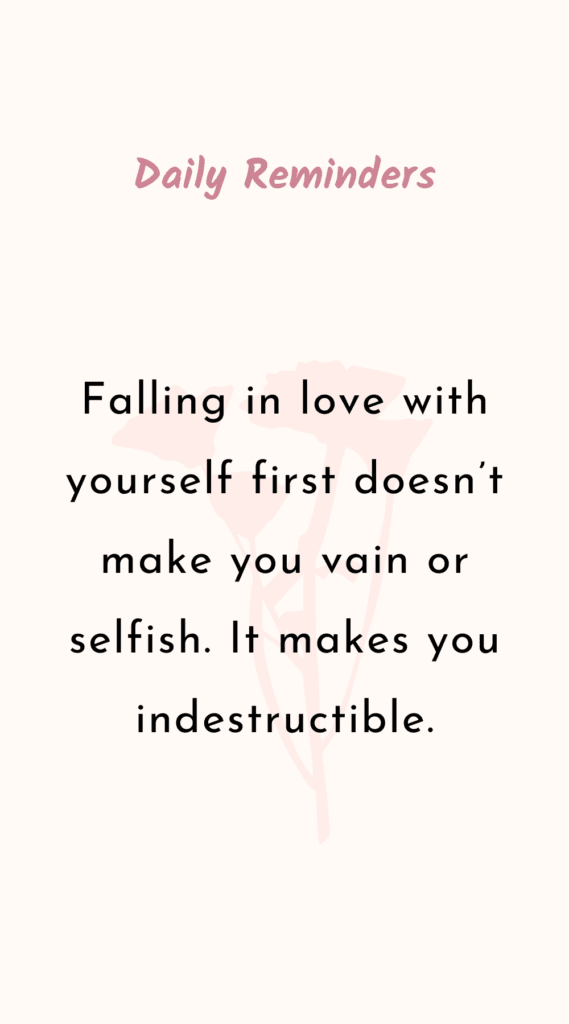
68. Be Willing to Learn from Friends and Family
We tend to be reluctant when it comes to learning from the people that are closest to us – our parents, spouses, friends, and children. We think to ourselves, “I have already learned all there is to learn from this person and there’s nothing else I need to learn.”
However, the people closest to us are the ones who know us the best. They can point to us ways in which we are acting in a self-defeating manner that we’re not aware of.
Letting your loved ones help you, not only will make them feel wanted, but it’s also a simple shortcut for growth. All it takes is a little courage and humility.
69. Be Happy Where You Are
We tend to postpone our happiness indefinitely. We keep convincing ourselves that when we have that dream job, ideal relationship, fancy car, etc, then we’ll be happy. We convince ourselves that will be better then. Meanwhile, life keeps moving forward.
There’s no better time to be happy than right now. There’s no way to happiness. Happiness is the way. So whatever challenges you’re going through decide to be happy anyway.
Related: 15 Easy Ways to Be a Happier Person
70. Remember that You Become What You Practice Most
Whatever you practice most is what you will become. In other words, your habits define you. If you are in the habit of acting as if life is an emergency or insisting on being right, your life will be a reflection of these habits.
Likewise, if you practice being peaceful, you’ll become a peaceful person.
Related: How To Transform Yourself For Success: 12 Steps To Take Today To Change Your Life
71. Quiet the Mind
A quiet mind is the foundation of inner peace. And if you find your inner peace, you’ll become peaceful on the outside too. Incorporating stillness into your daily life will make you less irritable and give you a greater perspective to stay focused on what matters most for you in life.
Techniques such as reflection, deep breathing, visualization, and meditation are great ways to quiet the mind. Be gentle with yourself and be consistent. A few minutes each day can make a huge difference.
72. Take Up Yoga
Yoga is a popular and extremely effective technique for becoming more relaxed and peaceful. People of virtually any age and fitness level can practice it and it only takes a few minutes a day.
Yoga strengthens your muscles and your spine, creating more flexibility. But it also benefits your mental health. It reduces stress and balances the body-mind-spirit connection, giving you a feeling of peace.
73. Make Service an Integral Part of Your Life
Peacefulness requires action as much as attitude. And one way to practice peacefulness is to make service an integral part of your life.
There’s nothing specific that you have to do as long as the act of kindness is genuine and generous. It could be giving your seat to an elderly person on the train, helping out in a school, giving money away to a charity, picking up litter on the road, etc. As long as you’re asking yourself “How can I be of service?” the answers will keep popping up.
74. Do a Favor and Don’t Ask For, or Expect, One in Return
We tend to keep scores of our own good deeds, especially with our loved ones.
Doing a favor without expecting or asking for anything in return shows you how easy it is and how good it feels to do something nice for someone. You’ll find out that giving is its own reward.
75. Think of Your Problems as Potential Teachers
Most people agree that our problems are one of the greatest sources of stress in our lives. But more accurately, it’s the way we relate to our problems that makes us stressed. In other words, how much of a problem do we make our problems?
Problems can either be seen as emergencies or as potential teachers. When we accept our problems as an inevitable part of life and look at them as potential teachers, our stress and confusion will decrease considerably.
76. Get Comfortable Not Knowing
We tend to always look for reassurance that everything is under control and that we know what’s going to happen, even though rarely do things turn out the way thought they would. We worry about everything, even though it almost always never happens.
Learn to keep your cool and stay open to possibilities.
77. Acknowledge the Totality of Your Being
We tend to deny the parts of ourselves that we judge unacceptable instead of embracing the fact that we’re all less than perfect.
It’s important to accept all aspects of yourself if you want to keep your peace. Instead of denying and burying any negative feelings such as anger, jealousy, or greed, open yourself to the truth and admit that “I’m feeling jealous and that’s okay.”
Embracing the less-than-perfect side of you will help you move through it quickly and grow beyond it. you won’t feel threatened by it.
78. Cut Yourself Some Slack
When you set for yourself a goal to stay relaxed and peaceful, keep in mind that you shouldn’t worry about being perfect. Cut yourself some slack because there will be so many times when you’re going to lose it and feel frustrated and stressed.
79. Stop Blaming Others
We tend to victimize ourselves and blame others whenever something unfortunate happens in our lives. This type of thinking leads you to believe that you are never completely responsible for your own actions, problems, or happiness. You feel powerless and become unable to do anything that will make things better.
Only when you stop blaming others, that you will regain your sense of personal power and see yourself as a choice maker.
Related: How To Get Over Yourself And Stop Feeling That The World Owes You Anything
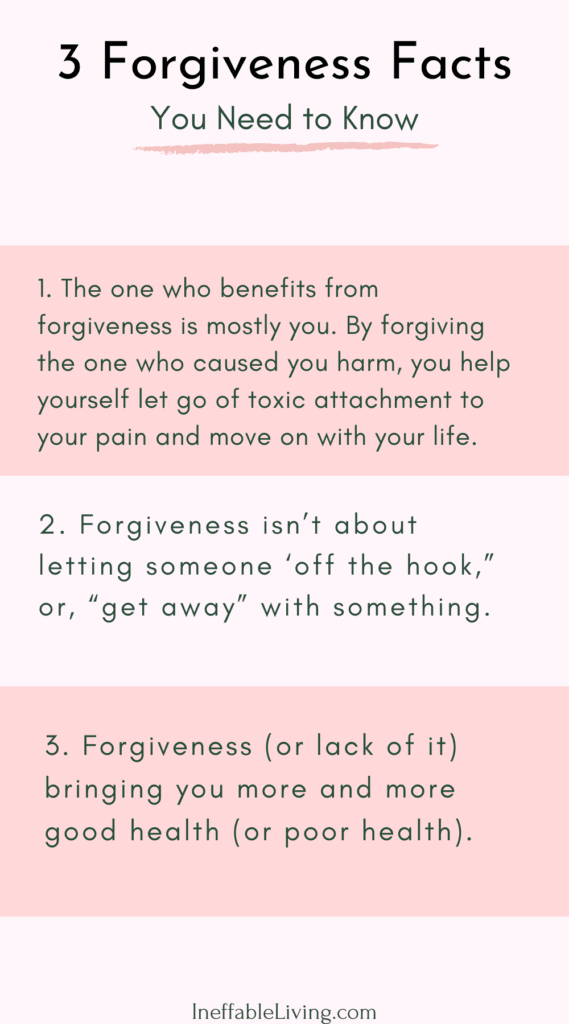
80. Become an Early Riser
Instead of waking up, rushing to get ready, and charge out the door to work, oftentimes with an empty stomach, try getting up an hour or so earlier and do something you love, meditate, read a book, etc.
Becoming an early riser and setting time to do the things you love and get yourself ready for the day will help you through it, but will also make you more peaceful and make your life more meaningful.
81. When Trying to Be Helpful, Focus on Little Things
Some people dream of doing great things to serve others, but at a later time – When they become successful, or rich.
The truth is, when trying to be helpful, all you need is to focus on the little thing. They too can make an impact. It could be something as simple as feeding homeless people in the streets, keeping a lonely elderly person company, helping a neighbor paint their home, etc.
82. Remember, One Hundred Years from Now, All New People
One hundred years doesn’t seem that long a time. Yet, one hundred years from now, we will all be gone from this planet.
Keeping this in mind will help you gain perspective during times of perceived crisis or stress. Being rejected, having a flat tire, having our vacation canceled, being stuck in traffic, overcooking a meal… many things will seem like small stuff not worth stressing over.
83. Lighten Up
People seem to get more and more serious. They get too frustrated and uptight about virtually everything that they lose perspective over it.
The way to lighten up is to start accepting life as being different from our expectations. Once you let go of your expectation, you become free.
84. Nurture a Plant
One of the requirements of inner peace is to learn to love unconditionally.
However, many find it hard to love a person unconditionally with all his flaws and mistakes. So it can be with a pet who’s going to wake you up in the middle of the night with his barking or ruin your favorite blanket with an accident.
This is why nurturing a plant can be ideal to practice unconditional love. Select a plant, indoor or outdoor, and start taking care of it and loving it. After a short while, you’ll be able to extend your unconditional love beyond your plant.
85. Transform Your Relationship to Your Problems
Problems are inevitable in our lives, and true happiness never comes from getting rid of all of our problems. Rather we find peace and happiness when we change our relationship to these problems.
Some problems need to be solved, but many others, we create for ourselves by not accepting ourselves and our lives and thinking negatively.
Problems can teach us to be gracious, humble, and patient. Once you accept this fact, you’ll become more peaceful.
86. The Next Time You Find Yourself in an Argument, Rather than Defend Your Position, See if You Can See the Other Point of View First
When you disagree with someone, they’re as certain of their position as you are of yours. But instead of learning something new from them, we choose to take our side and insist that we’re right and they’re wrong.
The truth is it doesn’t hurt your ego to open up to the other person’s point of view. If anything, it’ll bring you closer to the person with whom you’re disagreeing.
87. Redefine a “Meaningful Accomplishment”
We tend to spend our lives collecting achievements and earning recognition for things that might not be meaningful to us, simply because society considers them as meaningful.
Certainly, there’s nothing wrong with earning lots of money, getting a promotion, or winning a game, but these aren’t the most important types of accomplishment if your goal is happiness and peace.
Redefine your most meaningful accomplishment as being those that support qualities such as happiness and peace.
Related: 6 Steps to Find Happiness & Lead a Rich, Full & Meaningful Life
88. Listen to Your Feelings (They Are Trying to Tell you Something)
Your feelings make a foolproof guidance system to navigate you through life. They let you know whether you’re off track and headed toward unhappiness, or on track headed toward peace of mind.
When your experience of life is other than pleasant and you find yourself most of the time feeling angry, resentful, depressed, and so forth, this is a warning sign that you are off track. This is time to make adjustments in your life and change something.
Related: Your North Star: How to Find Your Life Purpose and Passion?
89. If Someone Throws You the Ball, You Don’t Have to Catch It
Most people have the tendency to jump on board someone else’s problem. Someone tells you about his problem, and you assume that you must fix it for them.
The truth is most of the time, people don’t need someone to fix their problems, they just need someone who’s going to listen and understand them. But even if you were asked to suggest what they should do, express how sorry you are that they’re facing this problem and day that you don’t know what to suggest. Anyway, rarely do people change something just because we tell them.
90. One More Passing Show
This strategy is a subtle reminder that everything in life – good or bad, will come and go. Everything has a beginning and an ending- every experience, thought, feelings…
Accepting this truth will help you live life as a liberating adventure.
91. Fill Your Life with Love
Everyone wants to live a life full of love. But in order for this to happen, we need to start within ourselves. We need to start loving ourselves and loving others unconditionally. You don’t need to wait for a relationship to love. Start with your family, friends, and even strangers.
By making yourself a source of love, you begin getting the love you desire.
92. Realize the Power of Your Own Thoughts
There’s a strong connection between your thoughts and the way you feel. Thinking works like breathing. Because you’re always doing it, you forget that it’s happening. But unlike breathing, forgetting that you’re thinking can cause unhappiness, anger, and stress.
In fact, in order to experience a feeling, you need to have a thought that will induce that feeling. You can’t get angry if you’re not having angry thoughts. This is why unhappiness doesn’t exist on its own. Unhappiness comes as a result of your negative thinking.
The first step toward happiness is becoming aware of your negative thoughts. Then remind yourself that it’s you’re thinking that is negative and not your life.
93. Give Up on the Idea that “More Is Better”
Having a lot of things isn’t bad in itself. It’s the desire to have more and more that is insatiable. As long as you believe that more is better, you’ll never be satisfied. You’ll be always asking “What’s next?”
By becoming more present-moment oriented and not focusing so much on what you want, you learn how to be happy with what you have. You become more satisfied and more peaceful.
94. Be True To Who You Are
Stop pretending to be someone else to please other people. Work to please the most important person in your life – you.
95. Keep Asking Yourself, “What’s Really Important?”
Asking yourself “What’s really important?” helps you regain your focus when you’re feeling lost and overwhelmed in the chaos and responsibilities of life.
It keeps your priorities straight and allows you to make an active choice in the things you want to put your energy in.
96. Trust Your Intuitive Heart
We often know intuitively something, yet we allow ourselves to think ourselves out of it. We don’t listen to our intuition for fear that we couldn’t possibly know something without thinking it through.
By trusting that your intuition won’t give you incorrect answers, your life becomes a magical adventure. Your intuitive heart can be your greatest source of wisdom and grace.
97. Be Open to “What Is”
Most of us insist that life be a certain way instead of opening our hearts to “what is”. But life isn’t always the way we would like it to be. It is simply the way it is. The sooner you surrender to this truth, the more peaceful you become.
98. Mind Your Own Business
It’s hard enough trying to deal with your problems, habits, and complexities of life. But trying to deal with other people’s issues, makes it impossible for you to find peace of mind.
This isn’t just about trying to give advice, it’s even when you simply think to yourself things such as “I wouldn’t do that if I were him,” or “What was he thinking about?” The truth is, it’s none of your business.
99. Look for the Extraordinary in the Ordinary
We see what we want to see. If you search for ugliness, you’ll find it everywhere, and if you search for beauty, you’ll also find it everywhere around you.
When start practicing seeing the extraordinary in the ordinary, things will start taking a whole new meaning and you become more grateful and more peaceful.
100. Schedule Time for Your Inner Work
You need to make yourself a priority. If you wait until all your responsibilities and chores to get done before you started taking some time for yourself, it will never happen.
Schedule a little time every day for yourself. Spend it reading, praying, meditating, reflecting, or however you want to use that time to take care of yourself and grow as a person.
101. Live This Day as if It Were Your Last. It Might
Even though we believe that we have a long life to live and plan accordingly, the truth is no one knows how long we have to live or when we are going to die.
Stop postponing things you know you should do today. Tell people you love how much you care about them, spend time with your loved ones, take that beautiful hike, write a heartfelt letter, and on and on. No one on their death bed had ever said “I wish I worked more.”
Living a Peaceful Life: In a Nutshell
As you give these strategies a try, you’ll learn that life has two rules:
1. Don’t sweat the small stuff, and
2. It’s all small stuff.
When you approach life with these two rules on your mind, you started living more peacefully.
How To Radically Simplify Your Life and Reduce Your Stress?
Oftentimes, we find ourselves overwhelmed with too much to do and too little time to do it.
Simplifying your life helps you increase your productivity and get more enjoyment from everything you do.
The starting point of simplification is reducing the number of things you do in your work and in your personal life that are of little value to you.
You may even have to stop doing some things you enjoy.
#1. The Seven Rs of Simplification
1. Rethink
When you start feeling overwhelmed with everything you have to do in your work and personal life, stand back and ask yourself, “Is there a better way to do it?” Put yourself in the position of an outside consultant and evaluate your own situation.
Be willing to question your current approach and give yourself objective advice on how to handle your situation.
2. Reevaluate
When you get new information, stop and reevaluate your situation based on the way it is today, right now, not the way you wish it were or the way it might have been in the past.
Ask yourself “What’s the reality today?”
3. Reorganize
The aim here is to increase your outputs with the same quantity and quality of inputs.
Constantly reorganize your workspace, your schedule, your priorities of activities… always be open to better ways to do the job.
4. Restructure
Devote more of your time, energy, money, and other resources to the top 20 percent of activities that account for most of your desired results.
Simultaneously, delegate, outsource or even eliminate low-value activities.
5. Reengineer
Focus on improving the process of your work.
Constantly, look for better, faster, cheaper, and easier ways to accomplish the task and achieve your desired results.
6. Reinvent
Imagine that you are starting your job or your career over again.
Ask yourself “If I were not doing it this way, knowing what I now know, would I start it up again this way?” Is there anything you would start doing? Is there anything you would stop doing?
7. Regain Control
Set new goals for your work and your personal life and create new action plans for these goals. Take responsibility for your life and commit yourself to take action on your goals.
Take charge of your time and your life.
Related: How To Reclaim Your Life: 5 Steps to Take Back Your Power And Start Loving Your Life
#2. Identify Your Values
Identifying your values is the first step to simplifying your life.
Ask yourself what is important to you?
Some of these values can be simplicity, satisfaction, independence, enjoying good relationships… Select the five values that are most important to you and organize them by priority.
Below is a list of values you can inspire from:
| Accuracy Achievement Adaptability Adventure Affection Alertness Ambition Assertiveness Authenticity Balance Beauty Boldness Broad-mindedness Calmness Capability Career Caring Clear thinking Compassion Competence Confidence Conscientiousness Consideration Contentment Contribution Cooperation Courage Creativity Customer-service Dependability Determination Diligence Discipline Dynamism Education Effectiveness Encouragement Energy Enjoyment Enterprise Enthusiasm Excellence Faith Fitness Flexibility Focus | Forgiveness Freedom Friendship Fulfillment Generosity Gentleness Good attitude Good humor Growth Happiness Hard work Health Helpfulness Honesty Hope Humility Imagination Impartiality Independence Innovation Integrity Joviality Joy Kindness Knowledge Leadership Learning Love Loyalty Maturity Method Meticulousness Modesty Naturalness Nurturing Optimism Organization Originality Patience Peace Perseverance Persistence Personal fulfillment Personal mastery Playfulness Pleasantness Politeness | Possessiveness Practicality Precision Professionalism Progress Prosperity Punctuality Purposefulness Quality Quickness Resourcefulness Respect Responsibility Satisfaction Security Self-actualization Self-control Sensibility Simplicity Sincerity Skill Sociability Specialness Status Strength Success Sympathy Tact Talent Teamwork Thankfulness Thoroughness Tolerance Tranquility Trustworthiness Truthfulness Understanding Uniqueness Value Versatility Victory Vigor Warmth Willpower Wisdom Wit Youthfulness Zeal |
#3. Determine Your Vision and Goals
Based on your value, create a vision for yourself. Imagine that your life is perfect in every way sometimes in the future and that you have no limitations at all.
What would your ideal life look like? Then set specific goals to simplify your life. If you’re not happy with your current situation, resolve to make new choices and decisions about what you want exactly, and make it a reality.
Ask yourself “If I had only six months to live, how would I change my life?” What would you do more of or less of? What would you start doing or stop doing?
Related: 7 Proven Ways to Set Goals and Achieve Them
#4. Learn How to Say No
The best habit you can develop in order to simplify your life is the habit of saying “No” to any demand on your time that isn’t consistent with your values and what you want most in life.
If a demand or a request is not a high-value use of your time, simply say no to it.
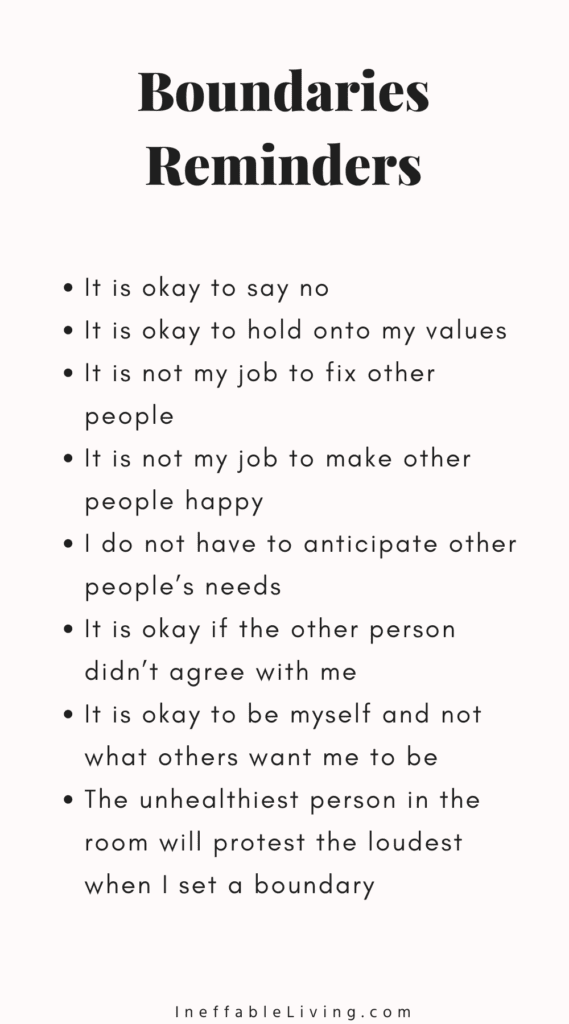
#5. Simplify Your Daily Life
Take action today to simplify your daily life.
1. Clean Up The Clutter In Your Life
Before you begin work, make sure your workspace is cleared off completely. Only keep one task on the desk in front of you, even if you have to put things on the floor.
2. Throw Away What Has No Value
Go through your stack of reading material and begin throwing things away. Magazines and newspapers that are more than six months old and information you can get somewhere else are junk you’ll never look at again.
3. Declutter
Go through your closets, our cabinets, and your garage and get rid of everything that is obsolete, unnecessary, out of fashion, or irreparable. Give away what can be given and throw the rest.
4. Leave Things Off
When you’re home resist the temptation to turn on the radio or the TV. Let your mind relax by creating periods of silence in your life. Another advantage of leaving things off when you’re with friends or family is that you’ll be able to communicate more and deepen your relationships.
5. Reduce Exposure to the Screen
The internet is a great tool for communicating information. However, it can also hinder your connection with nature, others, or yourself.
6. Practice Solitude On a Daily Basis
Give yourself thirty to sixty minutes of quiet time every day. Sit by yourself and allow your mind to relax.
Solitude has proven to help people become mentally stronger and sleep better. It’s also an essential habit of personal growth. Only when you’re by yourself that you can learn from your experiences and let your mind think of creative ways to change your life.
Related: How To Overcome Solitude Phobia: 4 Ways To Get Comfortable Spending Time alone
7. Reduce Your Commute
This will save you time and money, but also reduce stress related to rush hour traffic. Move closer to where you work or choose to live in a smaller town.
8. Live Close to Nature
The closer you are to the nature—its sights, sounds, smells, and energies—the more easily connected with yourself you become. If you can’t always spend time in nature, think about bringing nature indoors.
Related: 11 Healing Benefits of Indoor Plants For Your Mental and Physical Health
Resources
Portions of this article were adapted from the book Don’t Sweat the Small Stuff and It’s All Small Stuff, © 1997 by Richard Carlson. All rights reserved.
Portions of this article were adapted from the book A Proven System to Simplify Your Life, Double Your Productivity, and Achieve All Your Goals by Brian Tracy. All rights reserved.



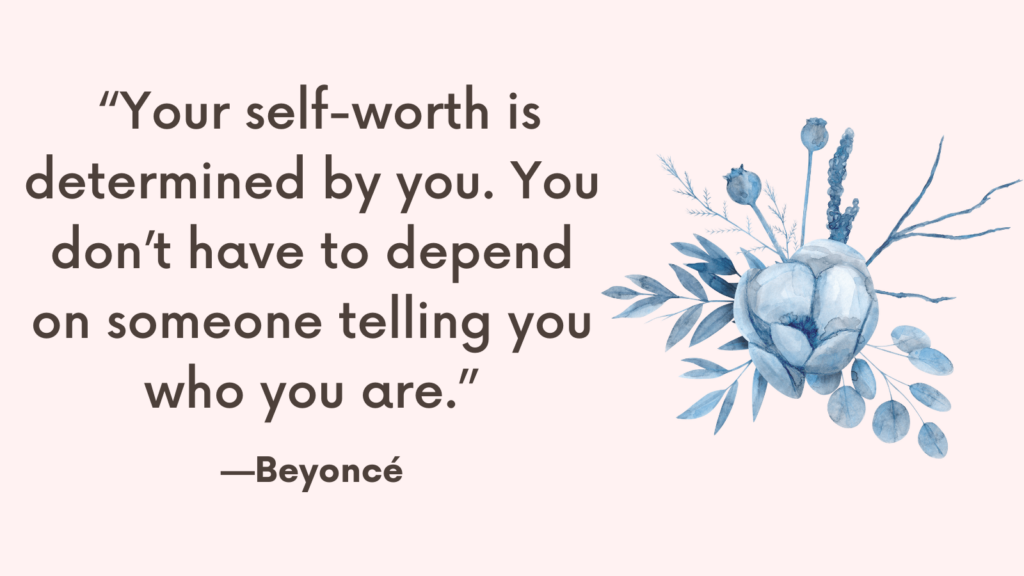
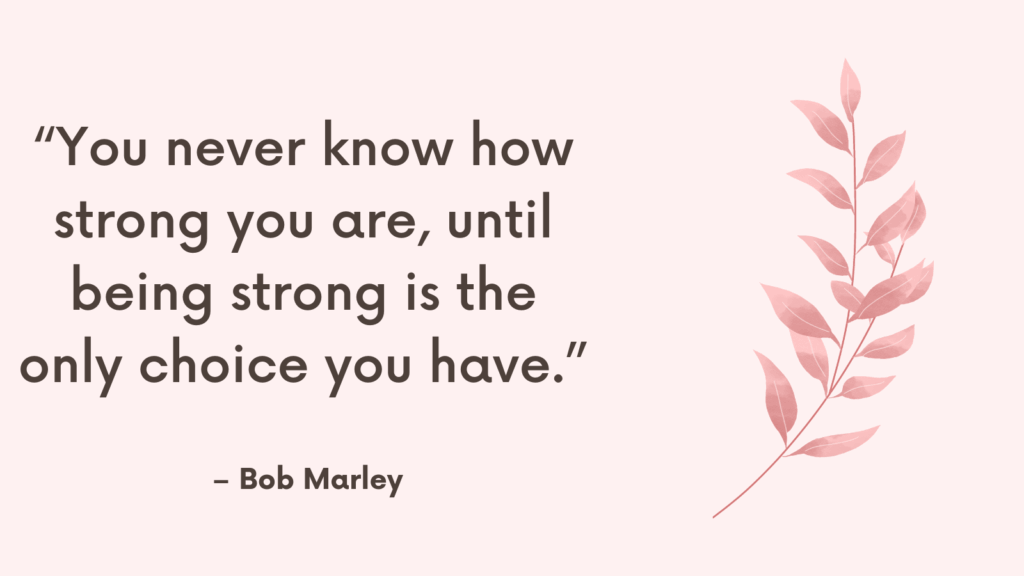
Comments are closed.